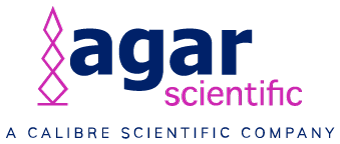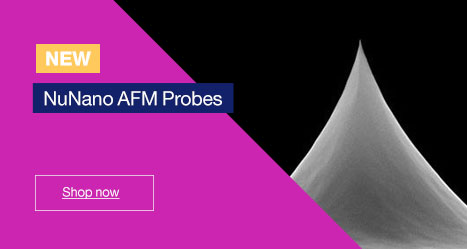

Agar Scientific and NanoScope Services are partnering to offer a unique service in specimen preparation for TEM. Focussed Ion Beam or FIB offers many possibilities for preparing ultra-thin sections for TEM analysis not possible using more conventional mechanical polishing or sectioning methods. This tried and tested process has been used routinely for many years and successfully applied by NanoScope to prepare customers samples from over 200 material types.
There are 4 clear advantages
- EXACT LOCATION and ORIENTATION – Have your ‘ultra thin’ section prepared from exactly where you would like. Specify the orientation of each section as well.
- MATERIALS INDEPENDENT – The FIB milling process is largely independent of materials hardness or structure. Complex materials combinations and devices are possible to prepare within a single section.
- ‘LARGE’ IMAGING AREA – A FIB prepared section tends to be of uniform imaging thickness and quality, allowing information to be collected across the majority of the section area.
- MINIMAL MECHANICAL PREPARATION. Most samples are immediately acceptable for FIB processing without embedding and slicing or cleaving and grinding. If it is clean and small enough, vacuum compatible and has a flat(ish) top surface it can probably be loaded immediately.
Standard section dimensions are typically 12-15 microns wide, 8-10 microns deep, and 100nm thick (all dimensions are ±20% depending on material).
After preparation the FIB sections are extracted and transferred to an Agar Scientific holey carbon support film on a 300 mesh copper TEM grid. They are shipped back to the customer in a secured Agar Scientific grid storage box along with instructions giving the position of the section on the grid.
With many years of experience and a high level of operator proficiency NanoScope make every effort to get the best sections possible from each sample using state of the art instrumentation. However, FIB preparation is a complex scientific process which relies in part on the machining characteristics, charging profile, mechanical stability, surface morphology, internal stresses and vacuum compatibility of the individual samples. Some variability in the shape and characteristics of the final result may be expected. All sections are produced on a ‘best effort’ basis.
FIB prepared TEM section service
- FIB prepared ultra-thin TEM sectioning - standard section
Target dimensions of 12-15 microns wide, 8-10 microns deep and 100nm thick (±20nm) milled from bulk sample, and extracted to 300 mesh copper TEM grid with holey carbon support film. Turn around time is 3 weeks from sample receipt.
Additional options
Please choose additional custom options as required.
Please note:
'Thinner sub region' and 'Amorphous skin reduction step' are not always compatible and can be attempted on a best case basis only.
'Thinner sub region' and 'Wedge shaped section' are never compatible.
- Fast turn – less than 1 week from sample receipt.
- Very Specific region. Rotational orientation and location <1um relative to visible surface feature.
- Thinner sub region. Vertical region of the section at a specified location/feature of interest, to be made 10-20nm’s thinner – material dependant – foil remainder becomes less usable.
- Protective sputter coated layer(s). Sputtered Carbon or Gold (or both) surface coating(s) prior to FIB deposited sacrificial layer being added, to preserve the crystallinity of the topmost 40nm’s of the sample surface.
- Amorphous skin reduction step – low kV clean. Amorphous content reduced to <20nm (±5nm) total with 10kV scrub.
- Wedge shaped section (thinner left to right or vice-versa). This gives the TEM user the option of selecting the thickness to crystallinity content ratio during analysis.
- Report and description - a two page report containing job information with the images (with filenames) collected from your sample during preparation and proccessing. Additional information is included describing the FIB process and the lift out process
Further details may be found at www.NanoScopeServices.com or should you have any questions about this process please call NanoScope Services on +44(0) 117 9576225 or email: contact@NanoScopeServices.com
Before ordering please study the associated documents and complete the customer check list, under the 'delivery and returns' tab, prior to sending your samples.




 FIB sectioning service Customer Checklist
FIB sectioning service Customer Checklist



